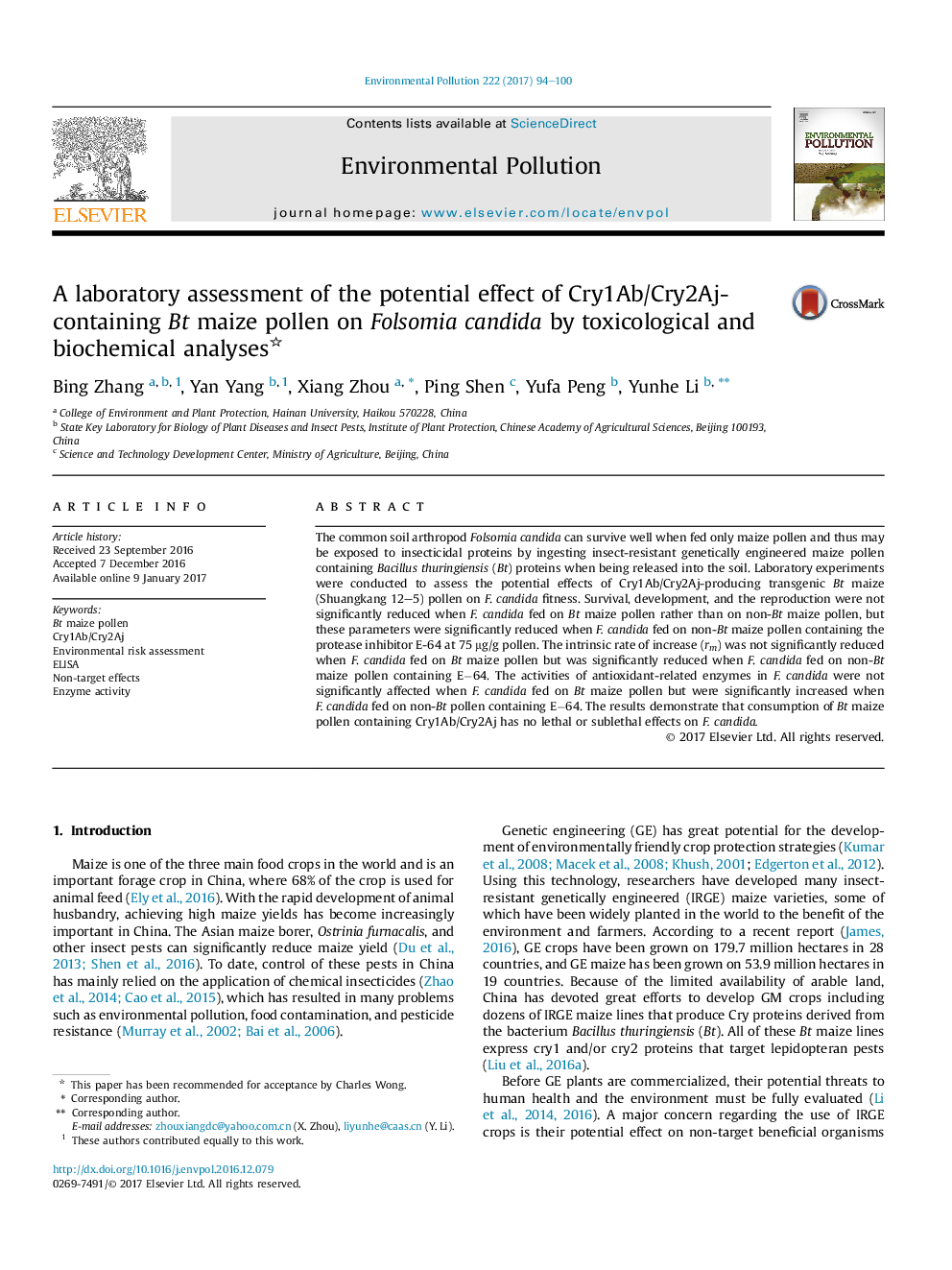| Article ID | Journal | Published Year | Pages | File Type |
|---|---|---|---|---|
| 5748998 | Environmental Pollution | 2017 | 7 Pages |
â¢A validated dietary exposure assay for assessing the effect of GE plant pollen on the springtails.â¢Cry1Ab/2Aj-containing maize pollen does not negatively affect on the fitness of F. candida.â¢The antioxidant-related enzyme activities in F. candida were not significantly affected.â¢Planting cry1Ab/2Aj-expressing maize will pose a negligible risk to the springtails.
The common soil arthropod Folsomia candida can survive well when fed only maize pollen and thus may be exposed to insecticidal proteins by ingesting insect-resistant genetically engineered maize pollen containing Bacillus thuringiensis (Bt) proteins when being released into the soil. Laboratory experiments were conducted to assess the potential effects of Cry1Ab/Cry2Aj-producing transgenic Bt maize (Shuangkang 12-5) pollen on F. candida fitness. Survival, development, and the reproduction were not significantly reduced when F. candida fed on Bt maize pollen rather than on non-Bt maize pollen, but these parameters were significantly reduced when F. candida fed on non-Bt maize pollen containing the protease inhibitor E-64 at 75 μg/g pollen. The intrinsic rate of increase (rm) was not significantly reduced when F. candida fed on Bt maize pollen but was significantly reduced when F. candida fed on non-Bt maize pollen containing Eâ64. The activities of antioxidant-related enzymes in F. candida were not significantly affected when F. candida fed on Bt maize pollen but were significantly increased when F. candida fed on non-Bt pollen containing Eâ64. The results demonstrate that consumption of Bt maize pollen containing Cry1Ab/Cry2Aj has no lethal or sublethal effects on F. candida.
Graphical abstractDownload high-res image (247KB)Download full-size image
